A story of 7 days of living with a strange Iranian man/ the subject of Spielberg’s “Terminal” 16 years on the airport benches
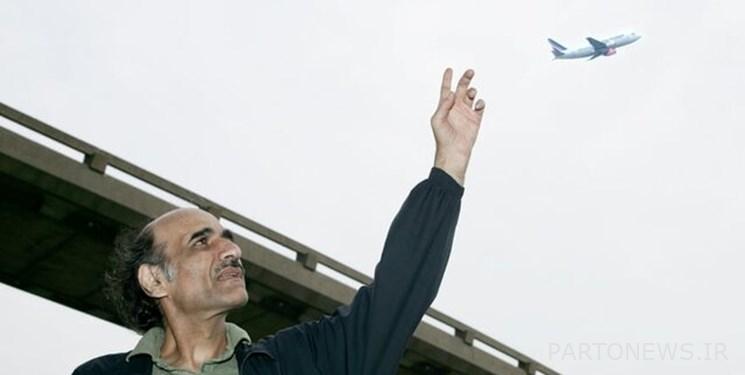
According to Fars news agency, Mehran Karimi Naseri, an Iranian man who lived at Charles de Gaulle Airport in Paris for 18 years and whose strange life story has been the basis for writing a book and a movie, died a few weeks ago at the age of 77, and under the same pretext, “Andrew Duncan, the writer who helped Mehran Karimi Naseri in writing the autobiography “Terminal Man”, shared a story of a week of living with this Iranian person to the Guardian.
We read this narration below:
“In the morning, I was faced with an unexpected request that I should go to Paris by a Eurostar train and, if possible, arrive at Charles de Gaulle Airport by 3:00 p.m. This is the kind of request that every writer dreams of, but rarely happens in real life. At the airport, I was to meet Sir Alfred Mehran, a stateless Iranian refugee who (at the time, in 2004) had been living on a bench in the departure hall of Terminal 1 for 16 years and whose autobiography, if possible, was to be read. Let’s write together under the title “Terminal Man”.
Sir Alfred’s full name was Mehran Karimi Naseri. He had entered the airport without sufficient documents and now he was caught and could not board the plane without a passport and if he left the airport to go to France he would be arrested for not having any identification documents. The airport is a no-man’s land, an endless limbo that he could never leave.
Barbara Lagwitz, the German editor who summoned me from London, introduced me to Sir Alfred, who died earlier this month. Hollywood director Steven Spielberg had bought the film rights to Sir Alfred’s story and later made this story into a movie called “Terminal” starring Tom Hanks, but Sir Alfred was eager to tell his true story in the medium he liked the most. had to define; Through the book.
As the fleeting life of the airport went on around us, I spent hours talking to Sir Alfred, a man in his mid-fifties, tall, with thin black hair and bright, intelligent eyes. Her couch was surrounded by several wheelbarrows and many boxes and bags of her belongings, creating something like a nest around her.
His most important possession was the many boxes of A4 paper containing his diaries. Sir Alfred explained that for over a decade he had been keeping his diary on a piece of paper given to him by a kind airport doctor. With a quick calculation based on the number of boxes, I guessed there must be something like 10,000 pages in there because he said he wrote on both sides to save paper.
I asked him how he came to be known as Sir Alfred and he explained with a grin that he had written to the British Embassy in Brussels asking for help and when they responded, their letter was titled “… Dear Sir, Alfred” on official embassy paper. Britannia had started and I continued laughing how could I not be a knight? (In the UK, knighthood recipients are referred to as “Sirs”).
The strength of most biographies is that they tell the truth, and I quickly realized that the real truth behind Sir Alfred’s life and his lost papers is as much a mystery to others as it is to himself. Many rumors and legends have been raised about him over the years, such as that he was deported from Iran, he was tortured, that he lost his documents, and most strangely, that his mother was an English nurse!
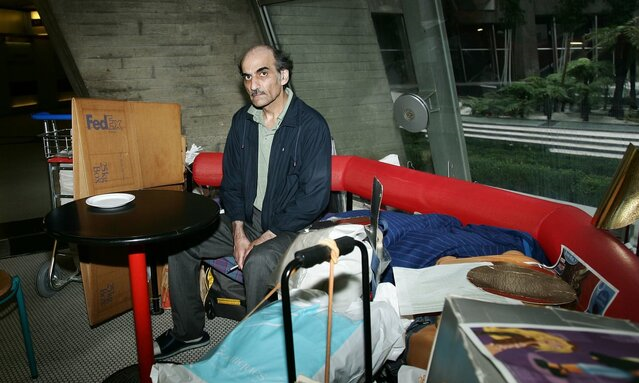
Being stuck in an airport terminal meant Sir Alfred’s life lacked any kind of structure, so he created one. Every morning, before the airport got crowded, he would leave his couch and go to the bathroom and shave. Then he buys his breakfast from the McDonald’s menu and after that he goes to the terminal newsstand to buy (or be given) some newspapers. Then he would go back to his couch and eat breakfast, and as the airport came alive around him, most of the passengers would pass by his couch without noticing.
Sir Alfred then begins the activity to which he devotes most of the day: writing. He filled page after page with his spidery black handwriting that swirled across unlined paper. He wrote everything. Whenever I went to get food, I would find him frantically transcribing our conversations, trying to write down as many words as he could before I got back.
After writing his memoirs, which he did during the day as events unfolded, he would relax and go to the newspapers. Sir Alfred loved to read and discuss world politics. During his stay at the airport, he had learned to read French and German in a self-taught manner using translation dictionaries and appropriate articles. He was a man of knowledge and did not like to waste time.
In those days, pilots and flight attendants were given coupons to spend on airport meals. Many of them brought packed lunches from home and gave Sir Alfred their airport vouchers. Thanks to them, he almost always had an unlimited supply of a very limited menu.
The rest of the day may be spent in any order of reading the news, writing an endless diary, or interviewing any curious members of the world’s press who may happen to be passing by. “Sir Alfred” didn’t have a cell phone, so no one, including me, could date him, and it was a kind of isolation that is almost unimaginable today.
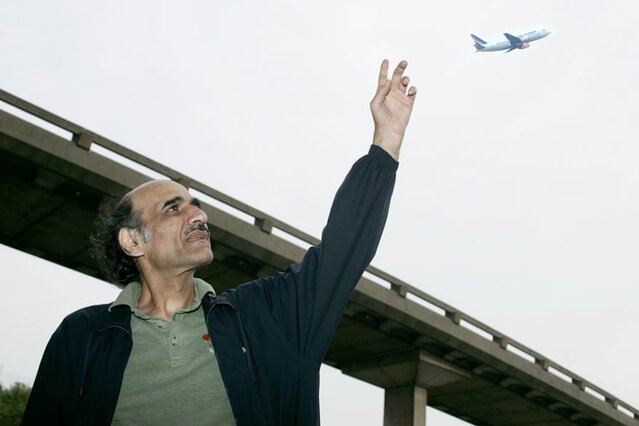
The airport gets quieter around midnight, though it really only stops for a few hours. While we were working on the book, I was staying at a nearby airport hotel, but to truly understand Sir Alfred’s life, I decided to spend a few nights on the hard metal bench next to him. The lights were on all night and the loudspeaker announcements only stopped between 1am and 4:30am. The benches were uncomfortable and narrow and we were constantly in danger of falling. It was hard work.
On the morning of the 6th, the airport announcements in French suddenly changed their tone and I saw passengers speeding out of the terminal. “They say there’s a bomb here,” Sir Alfred said casually, waving his hand towards the common area. I looked behind us and sure enough there was a lone suitcase on the now deserted path. About 50 meters behind the luggage, there were several airport security police and one of the security agents signaled me with his hand, but “Sir Alfred” had no intention of evacuating the area and did not want to leave many boxes of pages of his precious memories. “Someone left their luggage, it happens once a week,” he then confidently said.
Obviously, I didn’t want my work as Sir Alfred’s official biographer to end before it started and our relationship to be ruined by running away, so I went back and in the end there was nothing but a few pyjamas in that suitcase.
At the end of one of these daily interviews at the airport, a journalist told him: “I envy your freedom, I wish I could live as freely as you do, without any worries.” Sir Alfred pointed around him and said, “There are plenty of benches here.” Surprisingly, this journalist did not accept the invitation to a new life at the airport and returned home on the first flight.
Months later I returned to the airport to give Sir Alfred copies of The Terminal Man. As always, I couldn’t call ahead. I was a little worried because I really wanted her to like the book. As I approached his bench, he saw me and his face lit up with a wide smile. I didn’t have to worry about anything and he modestly said: We succeeded!
The enterprising manager of the airport’s Terminal 1 newsstand had ordered many copies and was selling many of the book, and “Sir Alfred” was happy to autograph the book for anyone who asked.
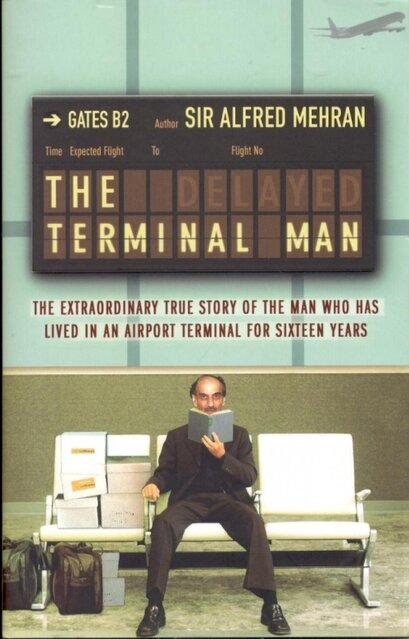
In the same year that the book “Terminal Man” was published, Steven Spielberg released the movie “Terminal” starring Tom Hanks, based on the life story of Mehran Karimi Naseri, a film that with a budget of 60 million dollars made nearly 220 million dollars. Dollars sold at the box office.
After the book was published, Sir Alfred stayed at the airport for another two years, but increased airport security and health issues meant he was finally forced to move after 18 long years. Living in that polluted air was not good for him and he suffered from a bad chest infection.
He spent the next few years living in a homeless shelter on the outskirts of Paris. His identity was completely based on the man who lived at the airport, but now he was the one who used to be at the airport. “Sir Alfred” was an incredible survivor, considering the wandering life he led.
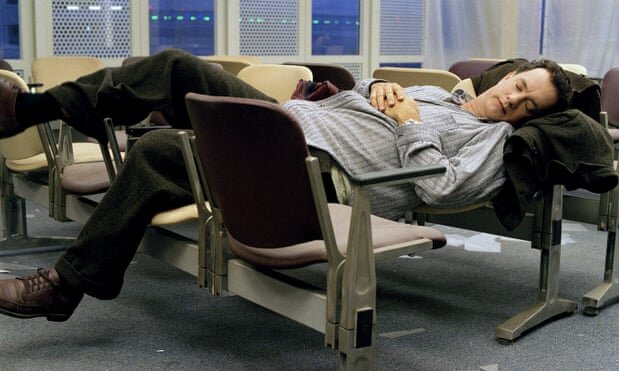
A scene from the movie “Terminal” by Steven Spielberg starring Tom Hanks
Knowing him left a lasting impression on me. Especially the importance of that small piece of paper called passport that legalizes international relocation! I really liked Sir Alfred very much. He was a true gentleman. I was saddened to hear of his passing, but heartened to learn that he returned to the airport to spend the last two weeks of his life there. “Over the years, the airport has become his true home and I hope it gives him a lot of peace in his final days, sitting on his old couch and preparing for his final journey.”
end of message/

